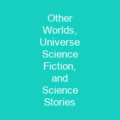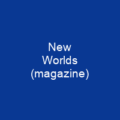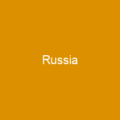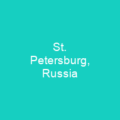Russia
Imagine a vast land stretching across Eastern Europe and North Asia, larger than any other country in the world, with over 14 countries as its neighbors. This is Russia, a nation that has seen centuries of history unfold within its borders.
The Genesis of a Great Power
Formed by East Slavs in the 9th century, Russia’s journey to greatness began under the reign of Peter the Great, who renamed it the Russian Empire in 1721. The country has since been involved in numerous conflicts and has emerged as one of the world’s great powers, albeit with a mixed record on democracy, human rights, and press freedom.
From Ancient Times to Modernity
The name “Russia” itself is a fascinating journey through time. Emerging from Russian sources in the late 15th century but not widely used until the end of the 17th century, it encapsulates centuries of cultural and political evolution.
Geography and Climate
Russia’s vast landmass spans latitudes 41° and 82° N, longitudes 19° E and 169° W. It is a country with nine major mountain ranges, including the Ural Mountains that traditionally mark the boundary between Europe and Asia. The climate varies from subarctic in Siberia to humid continental in much of European Russia.
Landscapes and Resources
The country boasts over 100,000 rivers, one of the world’s largest surface water resources, and is home to Lake Baikal, the deepest, purest, oldest, and most capacious fresh water lake in the world. Russia’s biodiversity includes a staggering number of plant and animal species, with nearly 15,000 protected natural territories covering over 10% of its area.
Government and Economy
Russia is a symmetric federal republic with a semi-presidential system, featuring a multi-party representative democracy. The government consists of three branches: legislative, executive, and judiciary. Despite democratic backsliding under Vladimir Putin’s rule, Russia maintains close relations with neighboring countries like Belarus and Serbia, as well as strategic alliances with India, China, Turkey, and Iran.
Economic Landscape
Russia has a mixed market economy, heavily reliant on its abundant natural resources, particularly oil and natural gas. The country is classified by the World Bank as a high-income country, with one of the lowest levels of external debt and significant foreign exchange reserves. However, it faces economic instability due to international relations and sanctions.
Culture and Heritage
Russian culture has had a profound impact on European literature, thought, classical music, ballet, sport, painting, cinema, science, technology, and space exploration. The country is home to 32 UNESCO World Heritage Sites and boasts a rich cultural iconography, including Matryoshka dolls and the double-headed eagle.
Artistic Achievements
Russian literature is considered among the world’s most influential, with notable figures like Nikolai Gogol, Fyodor Dostoevsky, and Leo Tolstoy. Russian philosophy has been greatly influential, with key thinkers such as Alexander Herzen, Mikhail Bakunin, and Vladimir Lenin.
Modern Challenges
Russia’s demographic crisis, driven by high death rates and low birth rates, is a significant challenge. The country faces issues like corruption, which affects various sectors including the economy, business, public administration, law enforcement, healthcare, education, and the military. Despite these challenges, Russia remains a major player in global politics and economics.
Conclusion
Russia’s journey from ancient settlements to its current status as a great power is a testament to resilience and adaptability. As it continues to navigate modern challenges, the nation’s rich history and cultural heritage remain integral parts of its identity. Whether through its vast landscapes or its influential contributions to global culture, Russia remains an enigma that captivates the world.
You want to know more about Russia?
This page is based on the article Russia published in Wikipedia (retrieved on November 23, 2024) and was automatically summarized using artificial intelligence.








